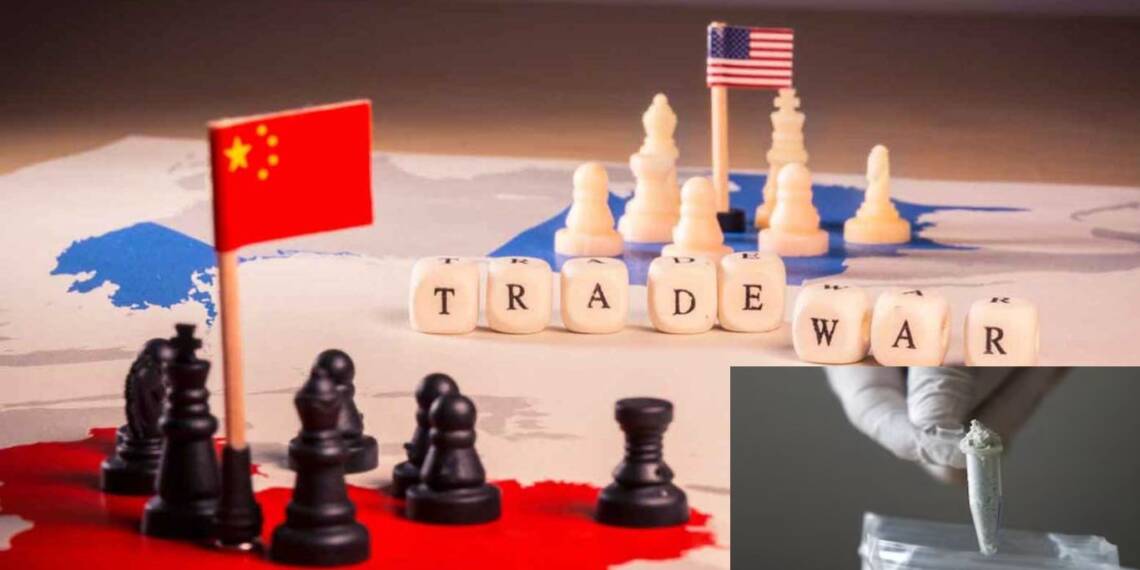On March 12, China said that the US had undermined bilateral counter-narcotics cooperation by imposing tariffs on Chinese goods over fentanyl. China also called on Washington to stop using the issue as a bargaining chip to “blackmail” the country.
After Trump’s return to power, the US has increased tariffs on all Chinese imports to 20 per cent from the previous 10 per cent, citing punishment to Beijing for what he says is its failure to halt shipments of chemicals used for the production of the deadly opioid fentanyl to the United States.
A senior Chinese foreign ministry official even said at a briefing in Beijing to discuss China’s white paper on fentanyl issued earlier this month, “The US should’ve said a big thank you to us.”
He further said, “But regrettably…the United States doesn’t appreciate this kindness. On the contrary, it is using the fentanyl issue to spread all kinds of lies and has been smearing China, shifting the blame, regardless of the progress of the cooperation.”
US Accusations on China
The fentanyl crisis in the US is a serious public health and national security concern. Tens of thousands of Americans die from fentanyl-related overdoses each year. The US has accused China of playing a critical role in this crisis.
According to the US, China is the direct source of precursor chemicals used to manufacture fentanyl. Chinese pharmaceutical and chemical companies legally or illegally produce and export fentanyl precursors to other countries, primarily Mexico. The cartels then synthesize fentanyl and smuggle it into the US, often across the southern border. The US also claims that Chinese suppliers sometimes work directly with the cartels to facilitate production and trafficking. Some Chinese companies sell fentanyl precursors directly to customers in the US and other countries via online marketplaces.
The US, where fentanyl abuse has been a major cause of death, has pushed China for deeper law enforcement cooperation, including tackling illicit finance, arrests of rogue chemists and raids of labs involved in the production of precursors. However, the US is not satisfied with the Chinese actions and considers the Chinese as a perpetrator in the crisis.
Chinese Response
China denies any official involvement in the fentanyl crisis. It has already cracked down on fentanyl production and placed it under strict control. China has always cited that the real issue lies with US demand and poor drug policies, and the US is scapegoating China instead of addressing its own domestic drug abuse problems.
The US and China restarted fentanyl and law enforcement cooperation more than a year ago under former US President Joe Biden, helping to improve ties that had suffered over issues ranging from trade rows, Covid-19, Taiwan and human rights.
The cooperation has resulted in multiple high-level visits over the last year and improved information sharing between the investigators, although Trump has accused China of not moving hard and fast enough with its fentanyl crackdown.
The Chinese foreign ministry official said that the US using “something that has achieved a lot of progress…as an excuse to slap tariffs on China was not the way to solve problems,” adding that the US was “returning kindness with hostility” and its actions made “no sense”.
“It will seriously undermine dialogue and cooperation between the two countries on drug control,” the official said.
“We are firmly opposed to the pressuring, threatening and blackmail from the US side, citing the fentanyl issue as an excuse.”
Over recent years, China has taken steps to constrict the fentanyl pipeline. During the first Trump administration, in 2019, it placed fentanyl and its analogues under national control, effectively ending illicit exports of the finished product.
What is the Fentanyl Crisis in the US
Fentanyl is a synthetic opioid that is 50 times more potent than heroin and has become the leading cause of overdose deaths in the US. It is often mixed with other drugs (like heroin, cocaine, or counterfeit prescription pills) without the user’s knowledge, leading to deadly overdoses. The US Drug Enforcement Administration (DEA) has labelled fentanyl as a key driver of the opioid epidemic, with over 70,000 deaths in 2022 linked to synthetic opioids. This crisis has created strained relations between the US, China, Mexico and Canada. This is one of the domestic issues that has a larger impact on the current foreign policy of the US.








